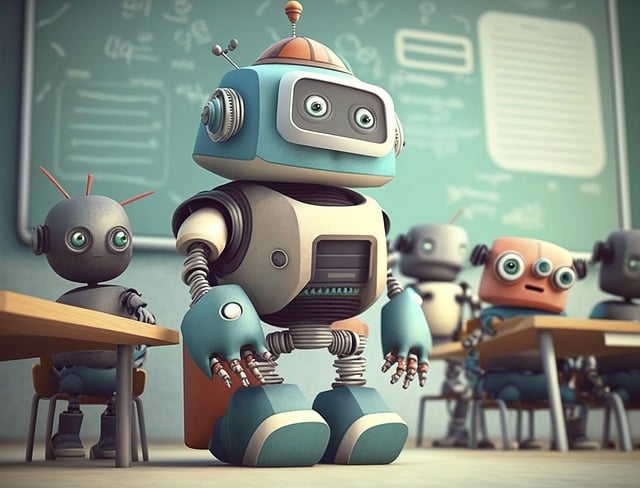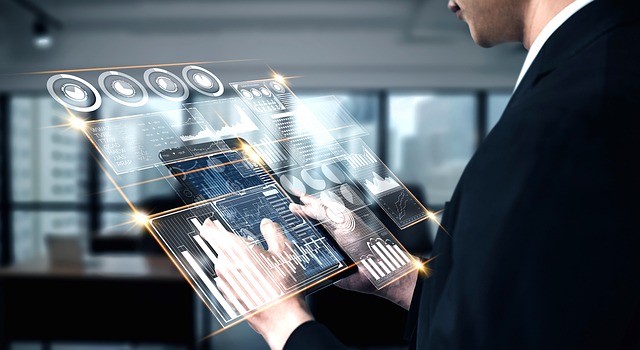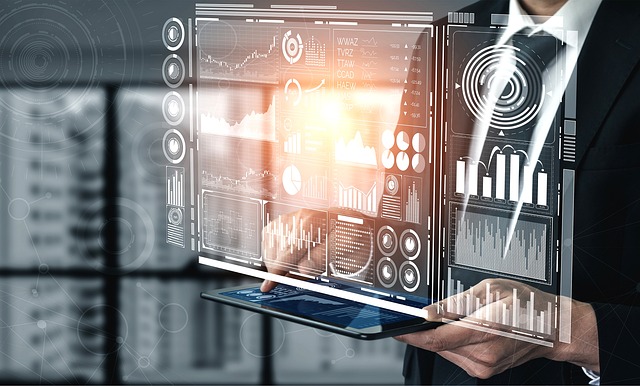Artificial Intelligence (AI) has been a buzzword in the tech industry for the past few years, and for good reason. This rapidly advancing technology is transforming the way businesses operate and the way we interact with technology. From chatbots to self-driving cars, AI is making waves in various industries, and its impact is only expected to grow. In this article, we will explore how AI is transforming business and technology, and what the future holds for this revolutionary technology.
The Rise of AI in Business
AI has been around for decades, but it’s only in recent years that it has become a mainstream technology in the business world. One of the key reasons for this rise is the exponential growth in data and the advancements in computing power. With the increase in data, businesses are now able to gather and analyze vast amounts of information, which was not possible before. This has opened up new opportunities for businesses to use AI to gain insights and make data-driven decisions.
One of the most significant impacts of AI in business is in the field of automation. AI-powered automation is streamlining processes, reducing costs, and improving efficiency in various industries. For example, in the manufacturing sector, AI-powered robots are being used to perform repetitive and dangerous tasks, freeing up human workers to focus on more complex and creative tasks. This not only increases productivity but also improves workplace safety.
Another area where AI is transforming business is in customer service. With the rise of chatbots and virtual assistants, businesses are now able to provide 24/7 customer support without the need for human agents. These AI-powered assistants are becoming increasingly sophisticated, able to understand and respond to natural language, making the customer experience more seamless and efficient.
The Impact of AI on Technology
AI is also having a significant impact on the technology industry itself. With the rise of AI, we are seeing a shift towards more intelligent and intuitive technology. For example, natural language processing (NLP) and machine learning algorithms are being used to improve the user experience of various devices and applications. This means that technology is becoming more user-friendly and personalized, making it easier for people to interact with it.
One of the most exciting developments in AI is in the field of self-driving cars. Companies like Tesla and Google are investing heavily in this technology, and it’s only a matter of time before we see fully autonomous vehicles on the roads. This not only has the potential to transform the transportation industry but also has implications for other industries such as logistics and delivery.
AI is also revolutionizing the healthcare industry. With the help of AI-powered tools, doctors are now able to analyze patient data and make more accurate diagnoses. This not only saves time but also improves patient outcomes. AI is also being used to develop personalized treatment plans and predict potential health issues, enabling preventive care.
The Future of AI in Business and Technology
The potential of AI is limitless, and we are only scratching the surface of what this technology can do. As AI continues to evolve, we can expect to see even more significant transformations in business and technology. One area where AI is expected to have a significant impact is in the field of data analytics. With the rise of big data, businesses are struggling to make sense of all the information they have. AI-powered analytics tools can help businesses make sense of this data and gain valuable insights that can inform their decision-making.
Another area where AI is expected to make a significant impact is in cybersecurity. With the increase in cyber threats, businesses are constantly looking for ways to protect their data and systems. AI-powered security tools can analyze vast amounts of data and detect anomalies and potential threats, allowing businesses to take proactive measures to prevent cyber attacks.
We can also expect to see more advancements in the field of robotics and automation. With the help of AI, robots are becoming more intelligent and able to perform a wider range of tasks. This has the potential to transform industries such as healthcare, manufacturing, and logistics, where robots can work alongside humans to improve efficiency and productivity.
However, with all these advancements, there are also concerns about the impact of AI on the workforce. Many fear that AI will replace human workers, leading to job losses. While it’s true that AI will automate some jobs, it will also create new job opportunities in areas such as data science, AI development, and machine learning. It’s essential for businesses and governments to work together to ensure that the benefits of AI are distributed equitably and that workers are equipped with the necessary skills to adapt to the changing job market.
In conclusion, AI is transforming business and technology in ways we never thought possible. From automation to personalized experiences, AI is revolutionizing the way we do business and interact with technology. As this technology continues to evolve, it’s important for businesses to embrace it and stay ahead of the curve to remain competitive in the ever-changing business landscape. The future of AI is exciting, and we can’t wait to see what it has in store for us.











